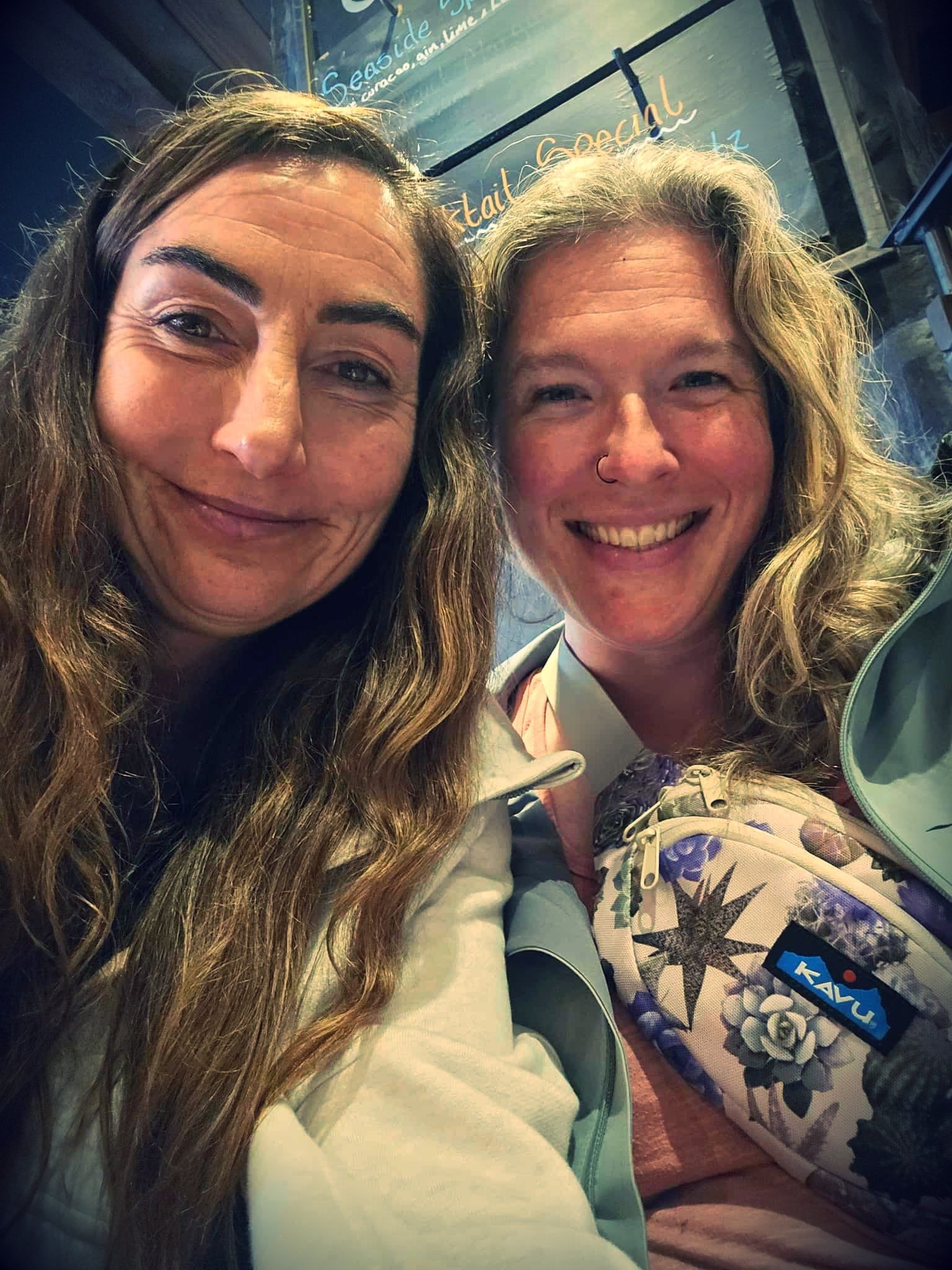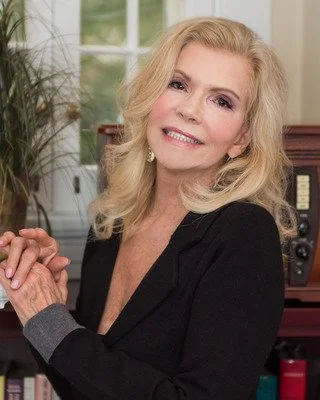Episode 262: Clinician's Corner - Beyond “Volume Addiction”
Molly and Clarissa reflect on the words that shaped their past year and the intentions guiding them forward, then dive into a nuanced clinical discussion on “volume addiction.” They explore when overeating after removing ultra-processed foods may be binge eating disorder, when it isn’t, and why nervous system safety, embodiment, and compassion matter more than rigid labels in long-term recovery.
Episode 261: Real Food Recovery: Holistic Healing, Harm Reduction & Building Lifelong Recovery Roots with Jamie Reno and Paige Alexander
Paige and Jamie from Real Food Recovery join us for a deeply human conversation about what it really takes to build sustainable recovery from ultra-processed food addiction. We explore their four core recovery branches, the role of nervous system regulation, spirituality beyond religion, and why recovery isn’t about perfection—it’s about adaptability, compassion, and support when life destabilizes.
Jamie shares her experience of leaving an abusive relationship while protecting her recovery, opening an honest discussion about harm reduction, abstinence debates, ego traps like “I’ll start Monday,” and how shame keeps people stuck. This episode is validating, grounding, and empowering—reminding us that recovery isn’t about controlling food, but about building a life that feels safe enough to stay in.
Episode 260: Healing Trauma, Shame, and Food Addiction through the Felt Sense Polyvagal Model with Jan Winhall
In this deeply validating conversation, Clarissa and Molly are joined by renowned trauma and addiction therapist Jan Winhall, creator of the Felt Sense Polyvagal Model (FSPM). Jan reframes addiction—especially bingeing, purging, and compulsive eating—not as pathology or failure, but as the body’s intelligent attempt to regulate overwhelming nervous-system states. Drawing on decades of feminist, somatic, and polyvagal work, this episode offers a compassionate roadmap for understanding trauma, shame, neurodivergence, and recovery through the wisdom of the body.
Episode 259: Dr. Carrie Wilkens, PhD on Rethinking Addiction Without Shame
In this episode of the Food Junkies Podcast, Clarissa and Molly sit down with psychologist Dr. Carrie Wilkens to explore what truly helps people change without shame, fear, or power struggles. Carrie shares insights from decades of work in addiction, eating disorders, trauma, and family systems—inviting us to rethink concepts like denial, relapse, codependency, and even the disease model itself. Together, they discuss how curiosity, values, and self-compassion can transform recovery and reshape how families and communities support the people they love.
Episode 258: Clinician’s Corner – Holidays Edition: Boundaries, Nervous Systems & the Hella-Days
In this Clinician’s Corner episode, Clarissa and Molly unpack why the “Hella-Days”—that stretch from September through New Year’s—can feel like the Holiday Hunger Games for anyone navigating food addiction, recovery, or a sensitive nervous system. They explore why this season is so activating, how early family patterns still shape present-day reactions, and what it looks like to move through the holidays with values, boundaries, and deep self-compassion.
Expect practical tools, boundary scripts, harm-reduction strategies, and honest stories from their own holiday journeys—whether you’re surrounded by family, choosing not to attend events, or spending the season on your own.
Episode 257: Dr. Nasha Winters, ND, FABNO - Cancer, UPFs, and Metabolic Healing
In this moving and deeply insightful conversation, integrative oncologist Dr. Nasha Winters shares her journey from a terminal cancer diagnosis at 19 to becoming a global leader in metabolic oncology. We explore how ultra-processed foods disrupt our biology and sovereignty, why cancer must be understood as an ecosystem, and how values-based, non-perfectionistic choices can transform health. Nasha offers practical tools, metabolic wisdom, and a fiercely compassionate vision for reclaiming agency in a UPF-heavy world.
Episode 256: Dr. Erica LaFata - Diagnosing Ultra-Processed Food Addiction with FASI
In this episode, Dr. Erica LaFata returns to share the development of the Food Addiction Severity Interview (FASI), the first clinician-administered diagnostic tool designed specifically for ultra-processed food addiction. We explore how FASI builds on the YFAS, why the field needs structured clinical assessment, and how clinicians can differentiate restrictive eating, binge eating, and true addictive patterns. Erica also offers insight into treatment implications, early exposure risks, practitioner competencies, and the hopeful path toward DSM recognition.
Episode 255: Challenging the Naysayers with Dr. Nicole Avena
In this compelling conversation, Dr. Vera Tarman and Clarissa Kennedy sit down with Dr. Nicole Avena to address the most persistent critiques of food addiction head-on. They break down why self-report tools are valid, why one PET scan doesn’t disprove addiction, how withdrawal from ultra-processed foods works, and why food addiction is a distinct, evidence-supported diagnosis. For anyone who’s ever wondered “What’s wrong with me?”, this episode offers clarity, validation, and science-backed insight.
Episode 254: Dr. Paul O'Malley
In this episode, we talk with Dr. Paul O’Malley, a leading biomimetic and holistic dentist reshaping how we think about oral health. He breaks down how sugar, grazing, mouth microbiome imbalance, and traditional “drill and fill” dentistry impact whole-body wellness. We explore practical, gentle steps to protect enamel, support healthy gums, and build long-term oral health from the inside out.
Episode 253: Clinician's Corner - From Rules to Guardrails: Rewriting the Manual for Recovery
In this honest, insightful conversation, Molly and Clarissa unpack the hidden “rules” that quietly govern our thoughts, choices, and recovery—from family norms to cultural conditioning. They explore how to spot which rules still serve you, which are keeping you small, and how to transform them into flexible, values-aligned guardrails that nurture freedom instead of fear.
Episode 252: Dr. Cate Shanahan - Are Seed Oils as Bad as Sugar?
Dr. Vera Tarman sits down with Dr. Cate Shanahan—family physician, nutrition consultant, and author of Deep Nutrition and Dark Calories—to discuss her case against industrial seed oils, how they may influence metabolic and mental health, and why she believes they can intensify sugar cravings and insulin resistance. We explore mechanisms she proposes (oxidation, mitochondrial stress), the “Hateful Eight” oils, and practical swaps that listeners can try if they choose to reduce seed oils. This episode presents a viewpoint that’s debated in nutrition science; we encourage critical thinking, self-experimentation within a safe plan, and consultation with your care team.
Episode 251: Daniel Trevor - Unholy Trinity: How Carbs, Sugars, and Oils Make Us Fat, Sick, and Addicted, and How to Escape Their Grip
Host Dr. Vera Tarman interviews citizen scientist and author Daniel Trevor about his book Unholy Trinity. They explore hyperinsulinemia as a “gateway” to disease, LDL particle size and CAC scores, statins debate, and practical, harm-reduction steps—testing, protein-forward meals, and sustainable swaps—to support recovery.
Episode 250: Ellen Bennett, RD, PhD (Candidate)
In this inspiring episode, Clarissa Kennedy speaks with Registered Dietitian and researcher Ellen Bennett, Operations Manager at Liberate with the Public Health Collaboration. Ellen shares her 14-year recovery journey, her PhD work on addiction-informed approaches to Ultra-Processed Food Addiction, and how compassion and evidence can coexist in lasting recovery.
Episode 249: Clinician's Corner - Understanding the Fawn Response
After returning from the International Food Addiction & Comorbidities Conference (and a soul-filling Scotland adventure), Molly and Clarissa dive into the fawn response—often mislabeled as “people-pleasing.” They explore how it forms, how it shows up in recovery and relationships, and gentle, practical steps for healing: awareness, boundaries, parts work, somatic tools, and self-compassion.
Episode 248: Dr Guillaume de Lartigue - Memory and Food Cravings
Why do junk food cravings return even after weeks of abstinence? Dr. Vera Tarman speaks with Dr. Guillaume de Lartigue, whose research uncovers how the brain’s memory circuits drive food cravings. They explore hedonic vs. memory-cued hunger, the role of fats and sugars in addictive food memories, and how marketing, stress, and early exposure shape vulnerability—plus strategies for recovery.
Episode 247: Dr. Anna Barbieri on Hormones, Appetite, and Women’s Health
Dr. Vera Tarman sits down with Dr. Anna Barbieri—gynecologist, menopause practitioner, and integrative medicine physician—to explore how hormones shape women’s appetite, cravings, and relationship with food. From PMS to menopause and PCOS, they discuss estrogen, progesterone, cortisol, thyroid, and appetite-regulating hormones, plus treatment and lifestyle strategies to support women’s health.
Episode 246: Dr. Bart Kay - Quit the Carbs or Quit the Fat? Sorting Strategy from Science
Dr. Vera Tarman talks with Dr. Bart Kay—nutrition scientist and outspoken “myth-buster”—about carbs, fat, and recovery from ultra-processed food addiction. They unpack the Randle cycle, insulin resistance, seed oils, low-carb vs. carnivore approaches, and why abstinence, staged change, and harm-reduction strategies can help people protect both health and recovery.
Episode 245: Renae Norton, PhD - Bulimorexia
In this Food Junkies episode, Dr. Vera Tarman and Dr. Renae Norton dive into bulimorexia—the cycling between restriction and binge/purge behaviors—and explore how it fuels relapse in eating disorders and food addiction. Dr. Norton outlines the medical and psychological risks, critiques common treatment gaps, and shares her holistic, skills-based, family-involved approach to recovery.
Episode 244: Dr. Michael Greger
In this episode of the Food Junkies Podcast, Dr. Vera Tarman sits down with Dr. Michael Greger to unpack the hype around GLP-1 drugs like Ozempic. They explore the risks, benefits, and natural ways to boost GLP-1 through whole foods, fiber, and lifestyle—offering evidence-based insights for weight loss, cravings, and food addiction recovery.
Bonnie Newlin, RDN - Lipedema, Food Addiction & the Power of Anti-Inflammatory Nutrition
In this episode of the Food Junkies Podcast, Dr. Vera Tarman speaks with registered dietitian Bonnie Newlin about lipedema—a misunderstood connective tissue disorder often mistaken for obesity. Bonnie shares her personal journey, explains how lipedema overlaps with food addiction, and offers evidence-based strategies for managing symptoms through anti-inflammatory nutrition, lifestyle tools, and emerging treatments.




















